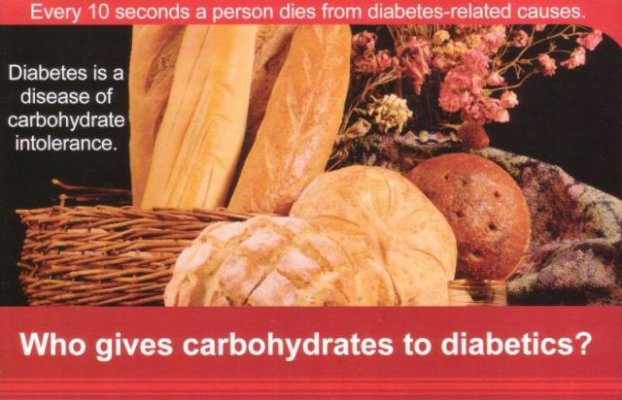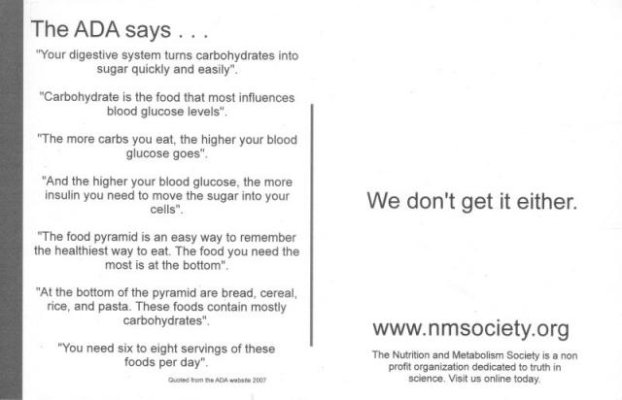As I mentioned previously, the condition requires the patient to be either act as their own "doctor", or learn to "push" to get the right info.
Most general practice doctors do not know much about long term maintenance of the condition (the exception for me of course is that my PCP's mother had T2, and my PCP cared for her for many years).
Very few PCP's have a good background in endocrinology, and many areas of the country have few endocrinologists available for those that have a "run of the mill" T2 (as I do).
As I said, I was diagnosed slightly over ten years ago. Over that time (just speaking for myself), the success of managing the chronic condition was primarily my responsibility (I will kill for a slice of pizza

), with the "assistance" of my PCP who orders the BT's.
It's not a disease that you can just sit back and let others (e.g. doctors) take care of you. You must be an active participant, and sometimes your own research will allow you to become your own "specialist".
- Been there - still there (still kicking)

...



 ), with the "assistance" of my PCP who orders the BT's.
), with the "assistance" of my PCP who orders the BT's.